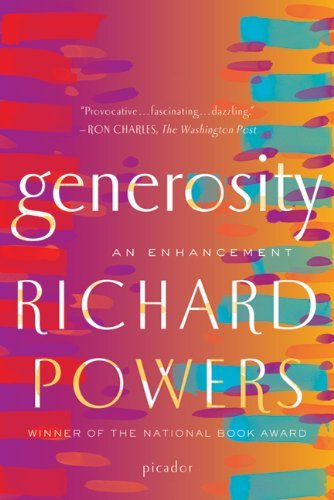What do you think?
Rate this book


336 pages, Paperback
First published September 29, 2009
It is Richard Powers' gift as a novelist not only to engage difficult ideas like those he deals with in this book—genomics, genetic engineering and related issues of ethics, intellectual property, human nature—but to do so in a way that is both playful and transporting,. Generosity is the story of a creative writing instructor, a therapist, a geneticist, a television broadcaster, and an Algerian Woman named Thassadit Amzwar, who is possessed of what comes to be called "the happiness gene." You may find yourself turning the last page with a feeling of exhilarating pleasure that gives an inkling of the natural state of the book's heroine.Note to members of Vital Conversations group: